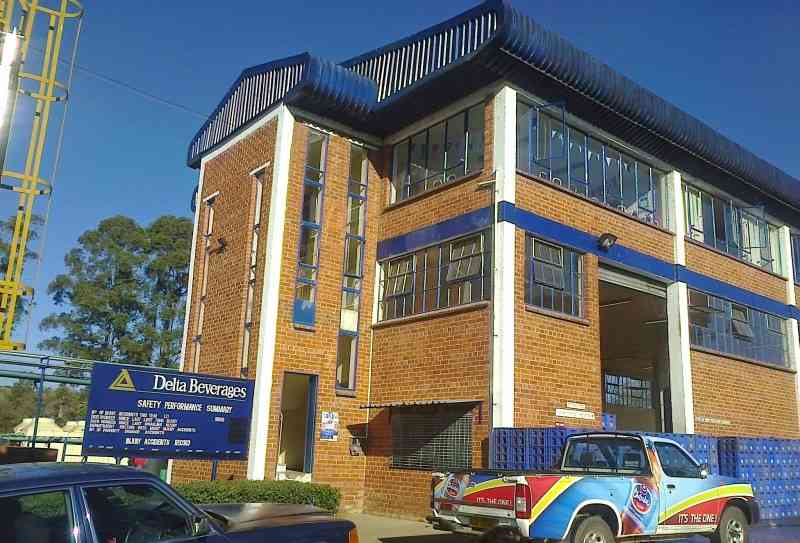
Delta Corporation’s half-year financials for the period ending September 30, 2025 offer one of the clearest windows into Zimbabwe’s consumer economy.
With operations spanning lager beer, sorghum beer, non-alcoholic beverages (including Schweppes), and wines and spirits through Afdis, the group’s results trace both demand patterns and structural pressures shaping the consumer staples sector.
Revenue for the period rose 32%, reflecting broad based 11% volumes recovery across its four main segments, though the underlying dynamics vary sharply across segments.
Expanding capacity needs
The lager beer segment continues to anchor the business (it contributed 40% to top line from 43% in the prior year), posting a robust 21% volume increase in the first half of 2026 (FY26). This reflects resilient consumer demand, supported by stable agricultural incomes, firm commodity prices, and the entrenched use of US dollars in the retail environment. Over 90% of the group’s revenue is now in foreign currency, with the lager segment almost entirely US dollar based at 99%.
Management is “investing behind demand”, with major capital expenditure underway. A new brew house and an additional packaging plant are expected to come online in Q3 FY27, expanding capacity to support future volume growth. This investment comes as competition intensifies, particularly following Varun Beverages’ landmark bottling deal with Carlsberg.
Tale of three markets
The sorghum beer business delivered mixed results across its three operating geographies. Zimbabwe registered a solid 16% volume increase, supported by improved maize availability and lower grain prices following the transition from El Niño to La Niña. The rebound highlights the segment’s sensitivity to local agricultural cycles and its importance as an affordable category.
- Letters to the editor: PVOs Bill must be shot down
- KIFC eyes Zim financial sector
- New perspectives: Impact of tax policy on gender equality
- Scrap IMTT to save industry, govt urged
Keep Reading
South Africa posted a marginal 1% increase, continuing the slow stabilisation observed in recent years. Zambia, however, saw a sharp 41% volume decline, largely attributable to prolonged power outages and the prohibitive cost of alternative electricity.
Management still remains committed to the Zambian operation. Sorghum beer production is structurally cheaper in Zambia than in Zimbabwe, and once energy issues ease, the market is expected to offer attractive regional production efficiencies. A withdrawal now would leave the market open to competitors and undermine the group’s broader regional strategy.
The sorghum segment, previously the group’s second largest revenue contributor at around 30%, now sits on par with the non-alcoholic beverages segment, each contributing roughly 26% to top line.
Pressures from tax, competition
The non-alcoholic beverages segment includes sparkling beverages, alternative beverages (Maheu), and cordials and juices (Schweppes) which continues to face fiscal headwinds. Sparkling beverages volumes grew 11%, while cordials and juices surged by 7%. Alternative beverages, however, surged 247%, driven by strong demand for affordable lines.
Despite these gains, the segment remains under pressure. Delta paid US$15 million in Sugar Tax in HY26 (compared to US$16,5 million in HY25), and management describes the tax as a “noose” around sparkling beverages.
The group has absorbed most of the tax on key packs to keep prices competitive, resulting in margin strain and depressed earnings. The segment also continues to lose share to cheaper imports and products using artificial sweeteners, widening the affordability gap.
The burden of the Sugar Tax, combined with rising competition, raises questions about prospects for margin recovery. Unless the surtax is reduced or restructured — as Delta has proposed — or unless management accelerates innovation in low sugar and alternative sweetener ranges, profitability is likely to remain under pressure.
Afdis: Standout performer
Afdis delivered a strong performance, with wines and spirits volumes rising 43% in the half year. The segment saw broad gains: ready-to-drink beverages increased 47%, spirits 36%, and wines 59%.
Much of this growth stems from the company’s ability to defend its market share against illicit substitutes through improved product availability, competitive pricing, and targeted innovation.
As the fourth contributor to group revenue at 8%, Afdis continues to provide a stable counterweight to volatility in other categories.
Currency puzzle
A key highlight from the results is the dominance of US dollar cash transactions in the retail market. Consumers continue to avoid the 2% IMT tax by opting for cash-based purchases, which now dominate formal retail sales.
Finance minister Mthuli Ncube has defended the IMMT tax as necessary for revenue mobilisation, but its unintended consequence is a steady drift toward a cash-heavy economy. This raises a policy contradiction: while authorities speak of de-dollarisation and the need to formalise transactions, incentives built into the system continue to push consumers toward physical US dollars. With over 90% of Delta’s revenue already in foreign currency, the question becomes whether de-dollarisation is feasible under the current tax architecture.
Tax disputes, market valuation
Delta remains embroiled in tax disputes with Zimra, involving assessments amounting to more than US$70 million. Although the courts have ruled against the company in several instances, the amounts have not yet accrued in the financials. The counter is trading below US$0,50, and while market sentiment is influenced by a range of factors, the looming tax obligations contribute to investors cautious approach.
Nonetheless, I maintain the view that this counter is significantly undervalued in real terms, a situation further compounded by the liquidity constraints of its trading currency — ZiG.
Taimo is an investment analyst with a talent for writing about equities and addressing topical issues in local capital markets. He holds a First Class Degree in Finance and Banking from the University of Zimbabwe. He is an active member of the Investment Professionals of Zimbabwe community, pursuing the Chartered Financial Analyst charter designation.











